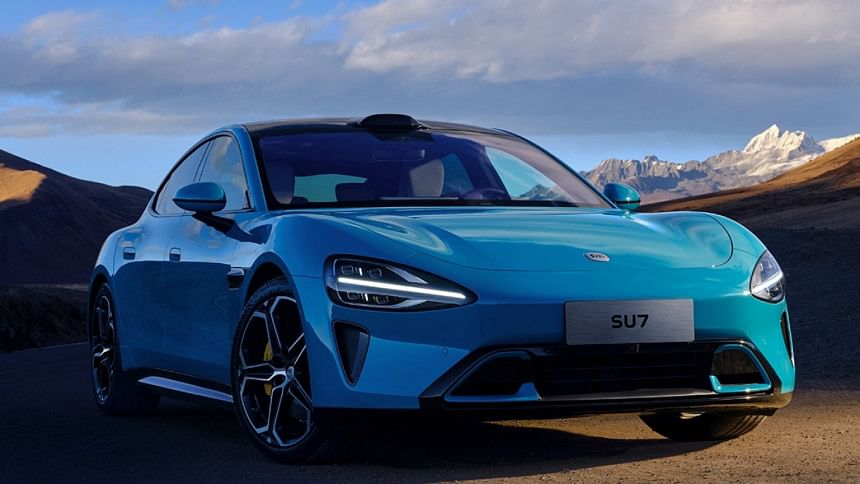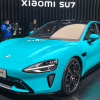Xiaomi launches its first electric car, the SU7

Xiaomi has unveiled its inaugural electric car, the SU7, marking a significant expansion into the automotive sector. The company's Chief Executive, Lei Jun, revealed the vehicle on Thursday, setting forth Xiaomi's vision to rank among the top five global automakers within the next two decades.
The SU7, boasting the acronym 'Speed Ultra', is poised to challenge established players in the electric vehicle (EV) market. Lei Jun has highlighted the car's advanced "super electric motor" technology, which reportedly enables acceleration surpassing that of Tesla and Porsche's electric vehicles.
The SU7 is slated to integrate seamlessly with Xiaomi's existing ecosystem of electronic devices and mobile apps, offering a cohesive user experience for those familiar with the brand's smartphones. This interoperability is expected to be a key selling point for the vehicle.
Xiaomi's electric sedan will be available in two variants, offering impressive driving ranges of 668 km (415 miles) and 800 km on a single charge, respectively. This performance narrowly eclipses the range of Tesla's Model S, which covers up to 650 km. Pricing details are yet to be disclosed, but Lei Jun has hinted at a premium price point that will be perceived as reasonable by consumers.
In addition to its performance capabilities, the SU7 is being marketed for its suitability in cold weather conditions. Amidst one of China's coldest Decembers on record, the vehicle boasts rapid charging in low temperatures and advanced technology capable of detecting obstacles in challenging environments, including heavy snowfall.
Production of Xiaomi's vehicles will be undertaken by a BAIC Group unit at a Beijing factory, with an annual production capacity of 200,000 vehicles.
Xiaomi's venture into the automotive industry occurs amidst a turbulent period for China's car market. The world's largest auto market is currently grappling with an oversupply issue and diminishing demand, leading to intense price competition. Despite these challenges, Lei Jun remains optimistic about Xiaomi's long-term automotive aspirations, aiming to elevate China's automobile industry to new heights.
The company's pivot to electric vehicles is part of a broader strategy to diversify its portfolio in response to the stagnating demand in the smartphone market. This move was initially announced in 2021, following in the footsteps of other Chinese tech giants like Huawei and Baidu, who have also ventured into EV development.
The company has committed to investing $10 billion in the automotive sector over the next ten years. Unlike many new entrants in China's crowded EV market, Xiaomi has secured approval from authorities, reflecting a notable endorsement in a tightly regulated industry.

 For all latest news, follow The Daily Star's Google News channel.
For all latest news, follow The Daily Star's Google News channel. 








Comments